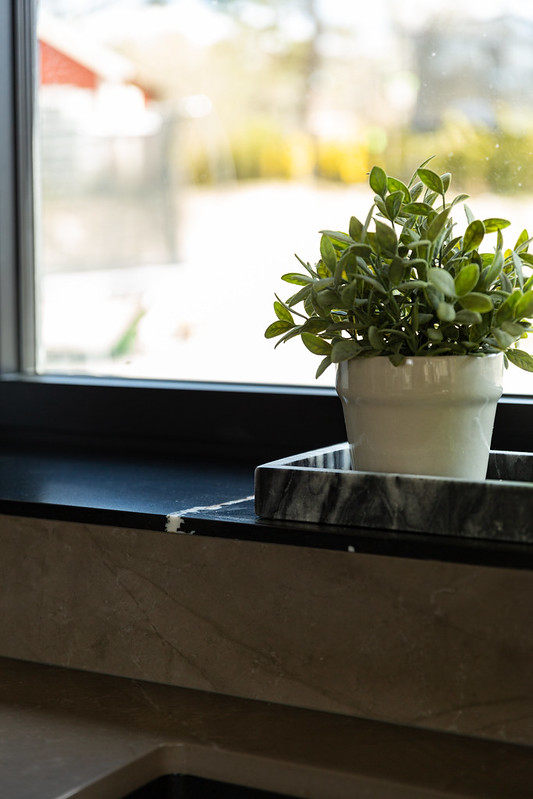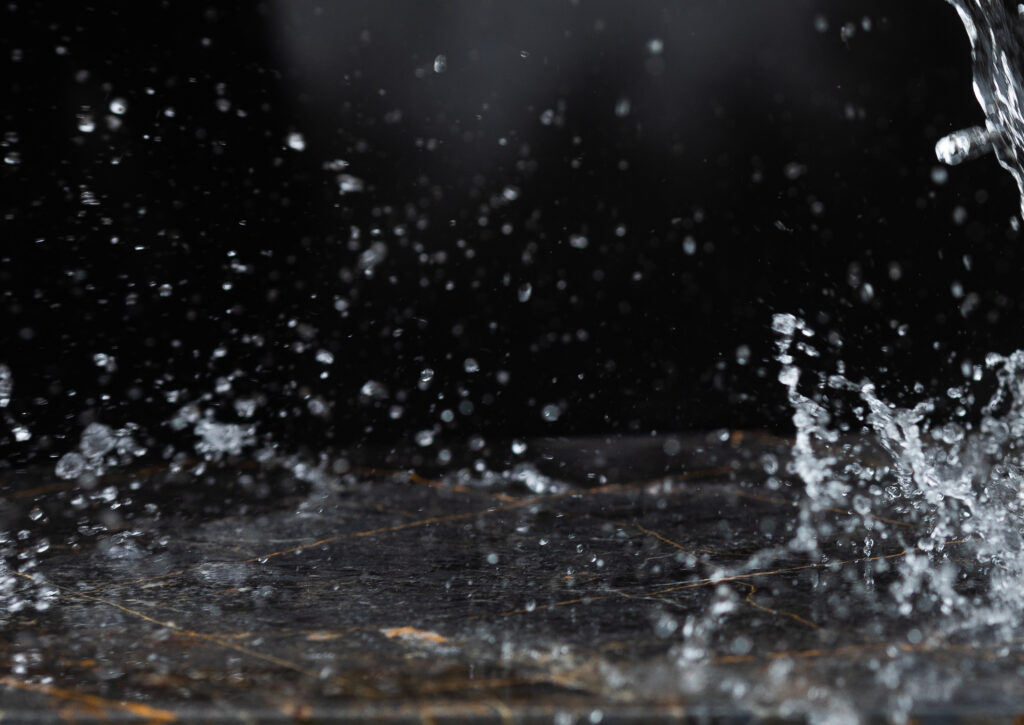
09 Maintenance
Some stones require no maintenance, others need some special attention. How to clean and take care of your stone surfaces and ensure longevity of each material.
Cleaning
Granite, quartzite, engineered stone and ceramics
These materials are durable and easy to clean. Any pH balanced general-purpose household cleaner can be used for cleaning these stone surfaces. Mild acidic cleaning products can be used as well.
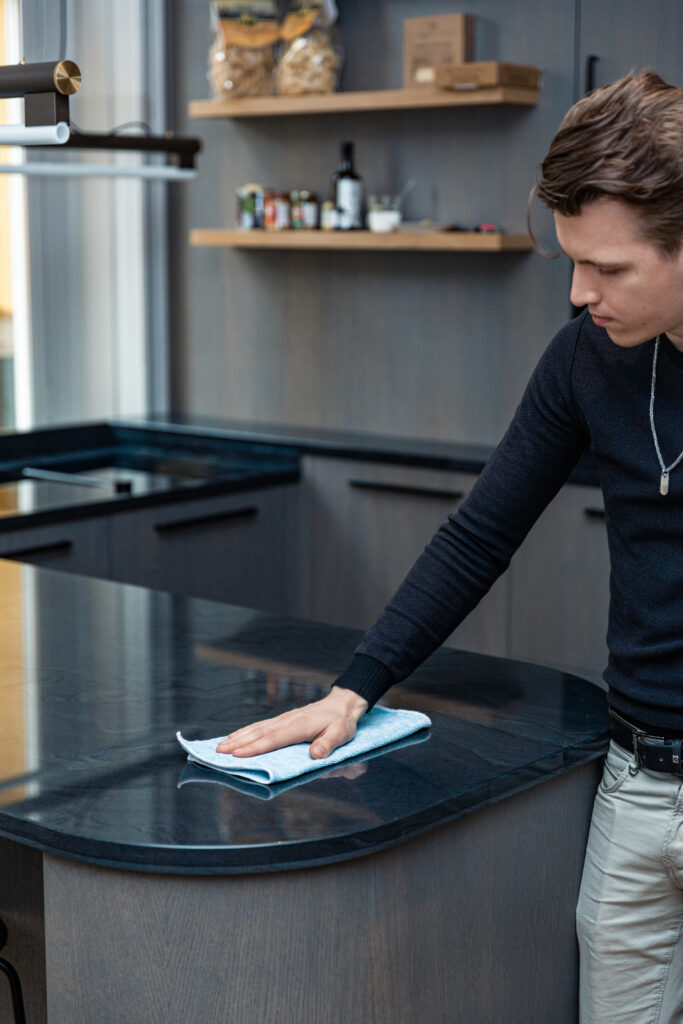
Marble, travertine, limestone and onyx
These materials are sensitive to any acidic products that get spilled onto the surface. Marble surfaces should be cleaned only with pH neutral cleaning agents that do not contain acid or bleach. If something acidic or containing pigment is spilled on marble, make sure to wipe it away as soon as possible in order to prevent stone from staining.
Wipe your stone surfaces with a pH neutral cleaner and warm water on a regular basis to maintain their beauty and shine for years to come.
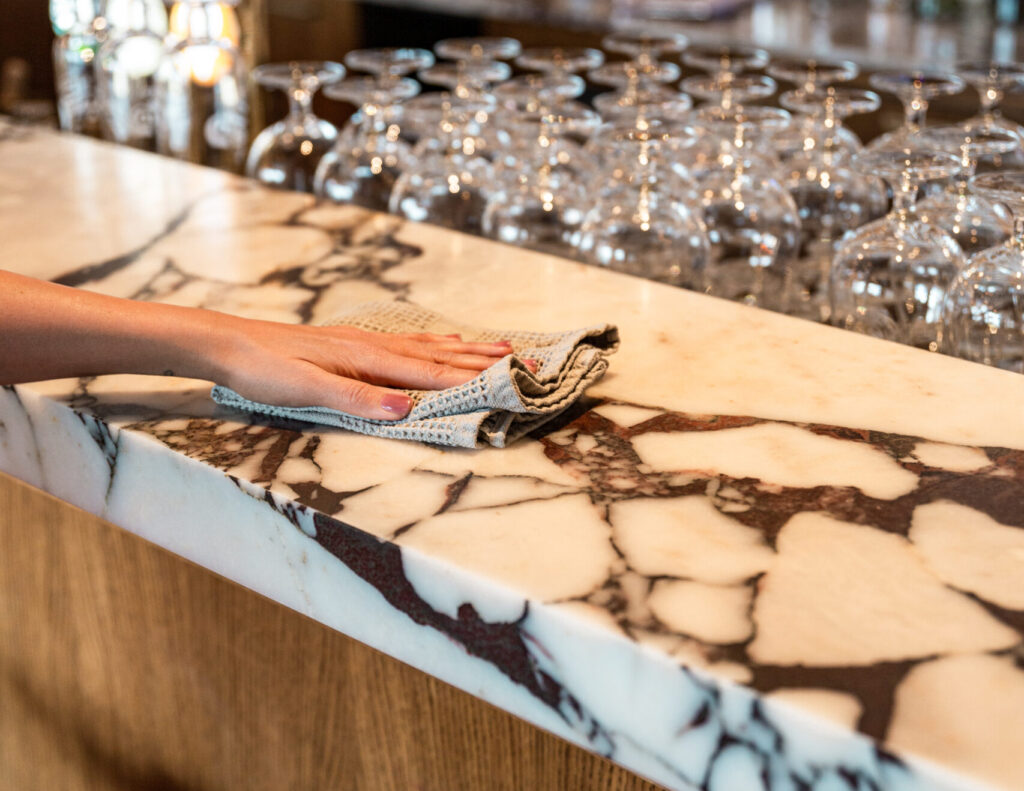
Impregnation
How impregnation works? Impregnating sealers penetrate and settle into the microporosities of the material, protecting it from any kind of dirt without altering the natural breathability and surface appearance of the material.
How to apply an impregnating sealer
Before applying the sealer, make sure the stone surface is clean and dry and at room temperature. Apply the sealer on the clean, dry surface using a soft clean cloth. Remove any excess product from the surface with a clean cloth 15 minutes after applying it. If the sealer has absorbed well, repeating the treatment one more time will give the best results.
Remove any excess sealer from the surface with a cloth soaked with a little product. Make sure you’ve achieved a uniform result.
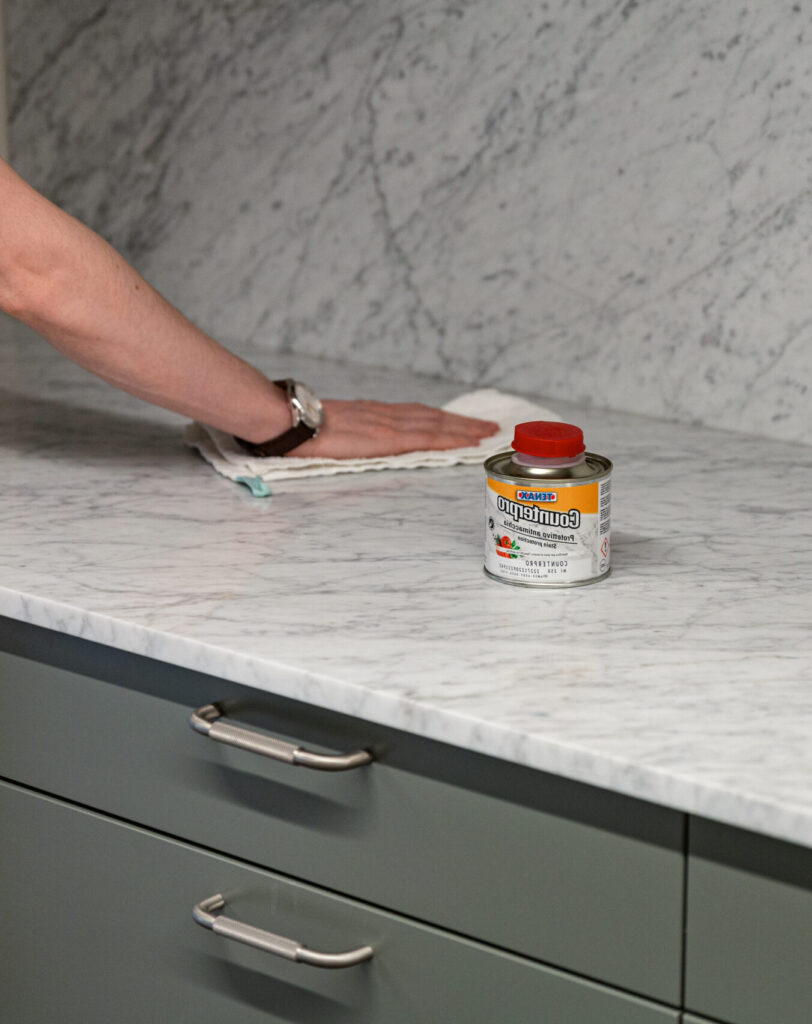
Impregnation for marble & limestone worktops
Marble and limestone require regular sealing to protect the surface from staining. Apply the first coat of sealer right after the stone has been installed. Then apply a new coat of sealer every few months. The more frequently your worktops are used (cooked on/cleaned), the more often impregnation needs to be repeated. Impregnation will save your marble from most stains that can happen.

Impregnation for granite & quartzite worktops
Apply the first coat of sealer right after the stone has been installed. Repeat the procedure every six months.
Honed and brushed stone surfaces require more frequent sealing, preferably every few months.
In rare cases, sealers may absorb into stone surfaces unevenly and cause oily stains. If this occurs, apply more sealer until the stains even out.
Always remove excess amounts of sealer with a soft cloth. Be patient about this and rest assured that the surface will eventually even out.
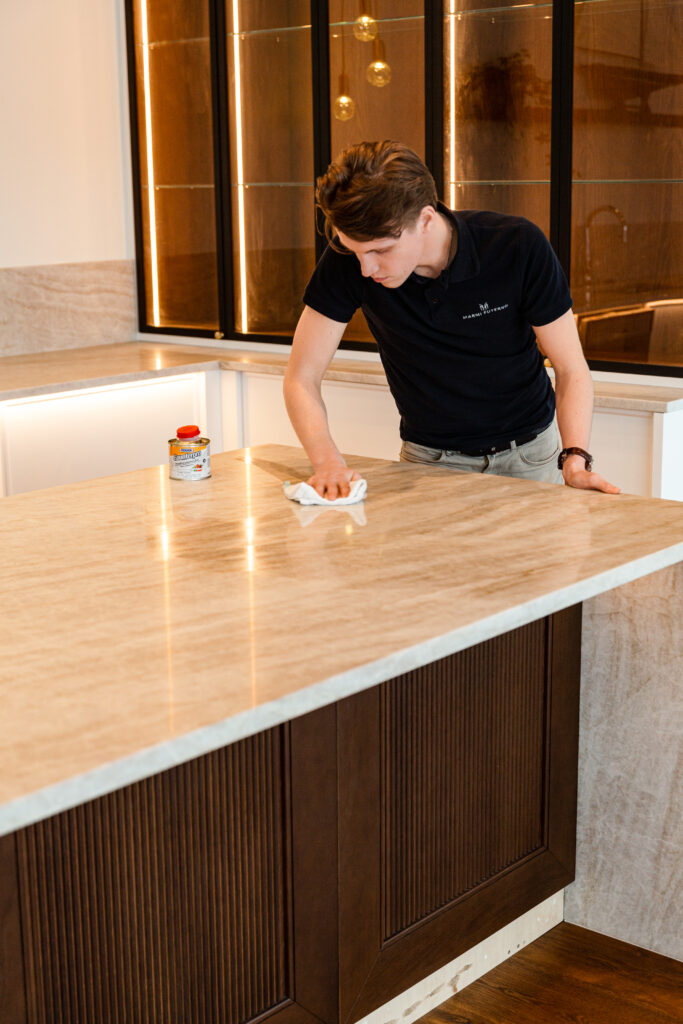
Impregnation for terrazzo
For the regular sealing of terrazzo surfaces, apply the first coat of sealer immediately after the stone has been installed. Further coats of sealer need to be applied every other month depending on how often your worktops are used and cleaned.
Impregnating sealers penetrate below the surface of the stone and ensure long lasting protection by reducing water, oil and dirt from entering the stone.
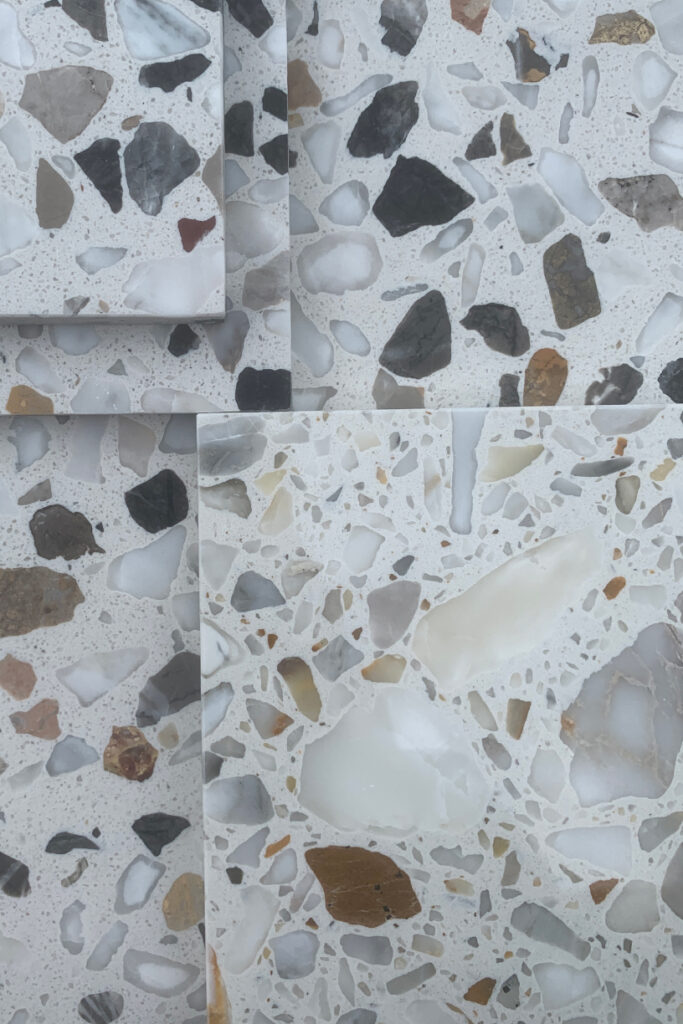
General Care & Precaution (especially for marble, limestone & terrazzo)
- Use coasters under glasses, particularly those containing alcohol. Acidic liquids like vinegar, citrus, tomato juice or wine can harm stone surfaces.
- Coffee, citrus, eggs and wine, if spilled on the surface, need to be wiped away immediately.
- Do not place objects recently removed from the heat directly onto the surface. Use a table mat or trivet. It is safe for natural stone and ceramics, but not for engineered stone.
- Use placemats under silver or other objects that can scratch the surface. It is safe for ceramics, but marble, limestone and terrazzo surfaces are easily scratchable.
